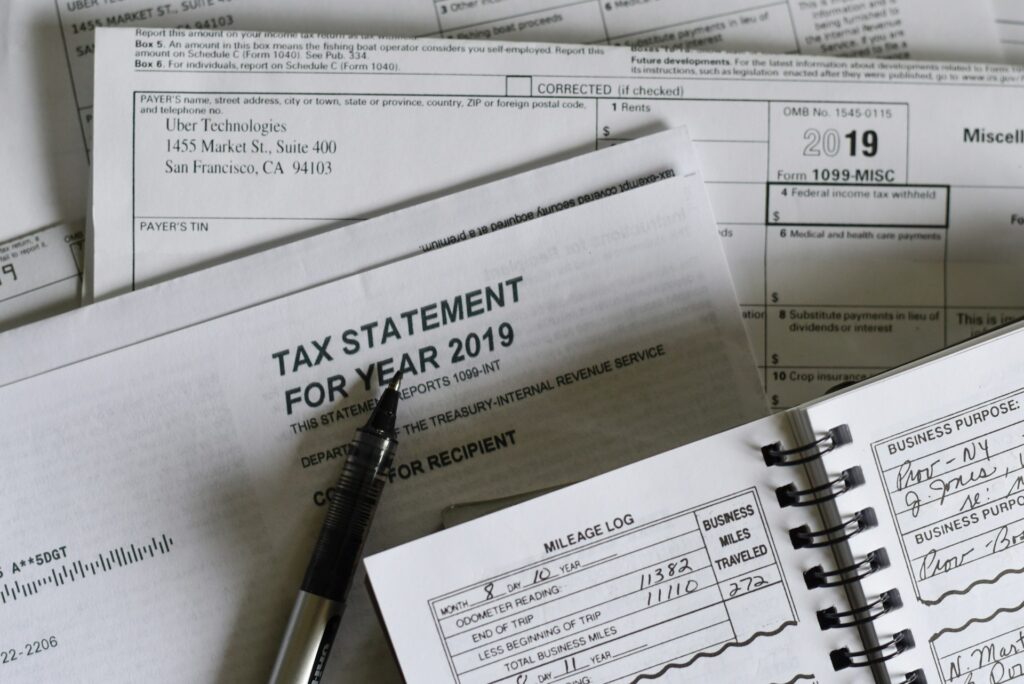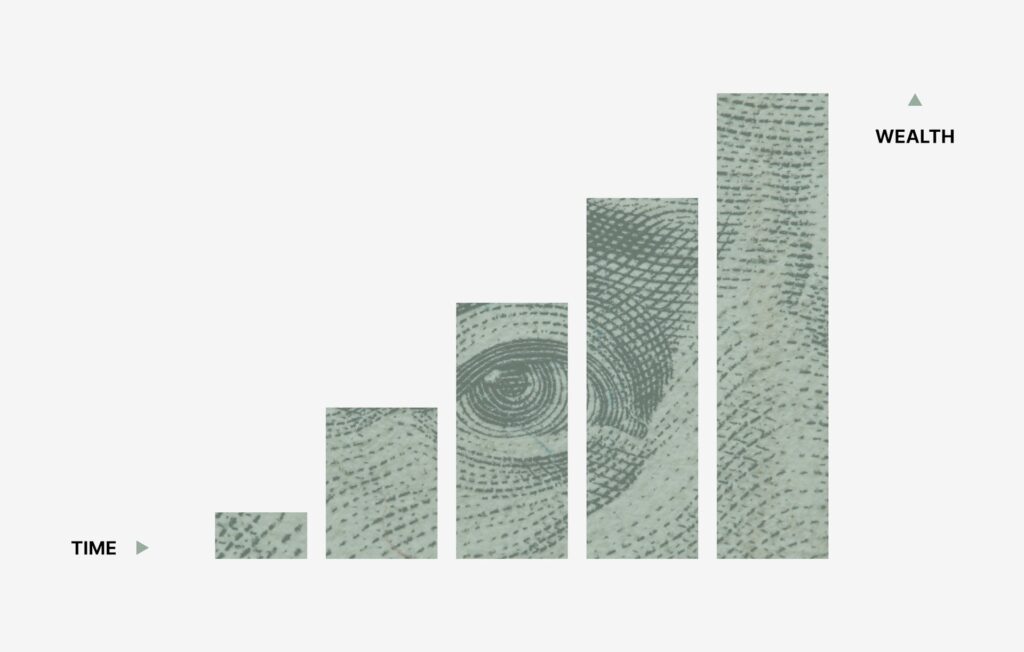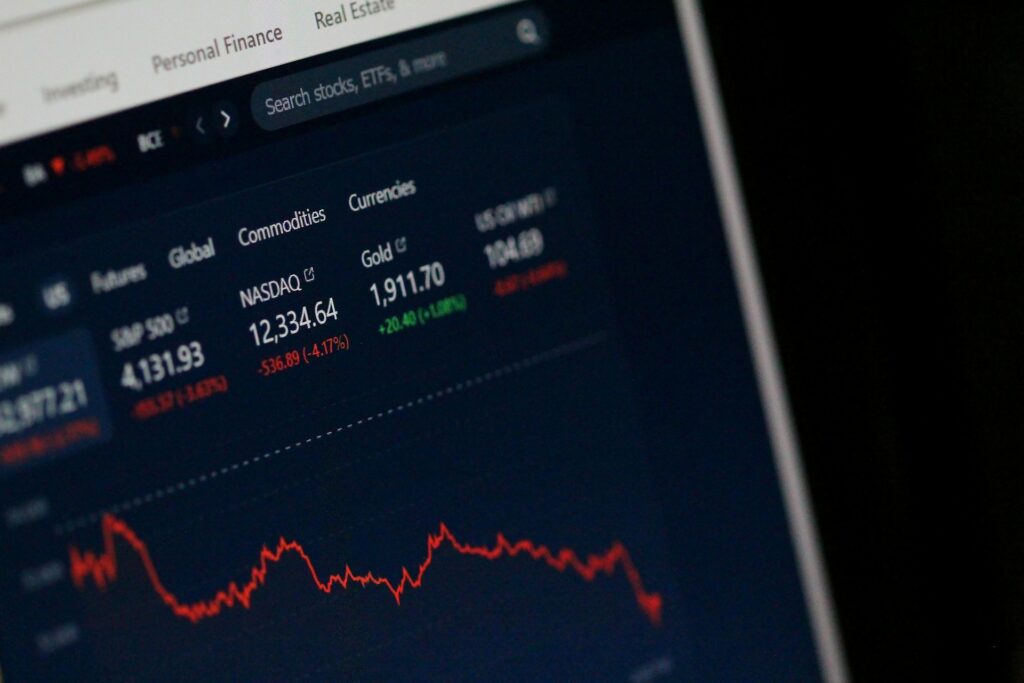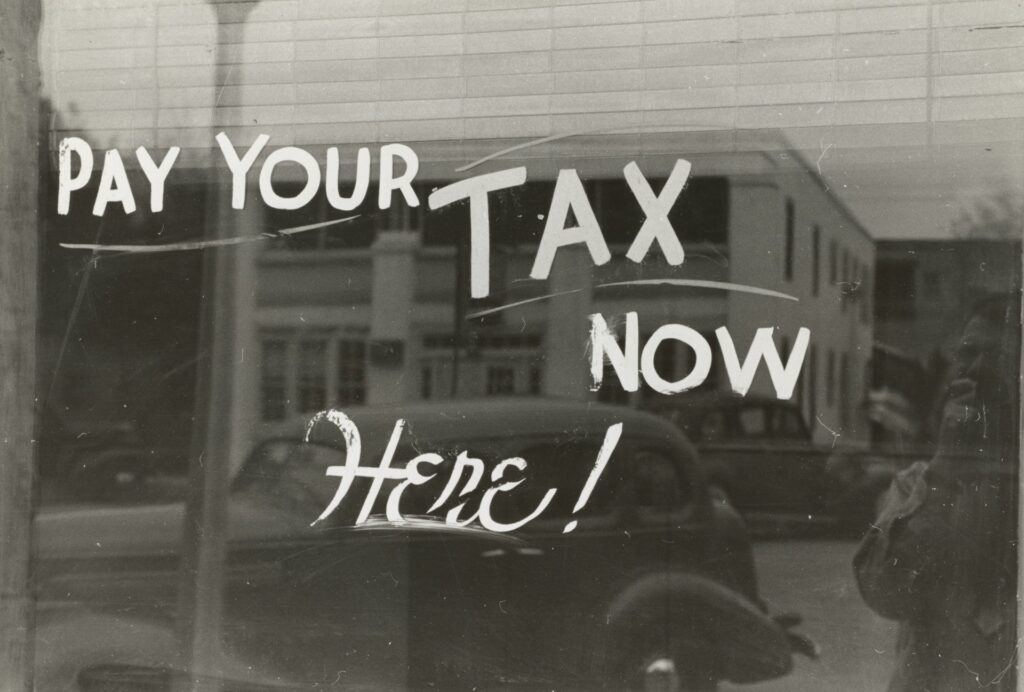Ever glanced at your paycheck, seen all those tax deductions, and thought, “Is this fair?”
You’re not alone. It’s a question that pops up a lot, especially when tax season rolls around. So, I decided to ask ChatGPT a simple question: “What would happen if billionaires paid taxes the same way the rest of us do?”
Spoiler alert: the answer was way more complicated (and shocking) than I expected.
Here’s the kicker: the U.S. tax system is meant to be progressive. That means people with bigger incomes should pay a larger chunk of their earnings in taxes. Sounds fair, right? But in reality, studies show something crazy: America’s wealthiest pay LESS in taxes than everyday working folks.
And no, it’s not some sneaky, hidden loophole. This is baked right into how the tax code is set up. So, in this piece, we’re going to dig into why the system treats wealth and work so differently.
Plus, we’ll look at what it would really take to fix this, and what could happen if billionaires were taxed like the rest of us.
| Disclaimer: All opinions presented here are based on information and analysis provided by ChatGPT. I’m just sharing what it told me, so keep in mind that some of these opinions could be controversial or open to interpretation. |
Contents
- 1 The Great Tax Divide: Why Your Tax Rate Isn’t Their Tax Rate
- 2 The Billionaire’s Playbook: Mastering the Art of Tax Avoidance
- 3 The Multi-Trillion Dollar Question: What If Billionaires Paid Taxes on Wealth?
- 4 Economic Dominoes: The Case Against a Wealth Tax
- 5 Déjà Vu? A Quick Trip Through U.S. Tax History
- 6 A System by Design
The Great Tax Divide: Why Your Tax Rate Isn’t Their Tax Rate

So, let’s break down this wild tax divide. First, we’ve got the effective tax rate. Basically, how much tax someone actually pays compared to how much money they make.
For most of us, this is pretty straightforward: your salary gets taxed, and those deductions show up on your paycheck. But for billionaires, it’s a whole different story.
The numbers get tricky because, for the ultra-wealthy, “income” isn’t just about a paycheck. It’s about their entire fortune: assets, investments, stock value, you name it. And when you start measuring that, things get weird.
Take this: from 2010 to 2018, the 400 richest families in the U.S. paid an average federal tax rate of just 8.2%, according to White House economists. But get this—ProPublica’s deep dive into leaked IRS data showed the 25 richest Americans paid an even lower “true” tax rate of just 3.4% on their wealth growth between 2014 and 2018. Sounds insane, right?
How is that possible? Well, when they say “tax rate,” they’re not just looking at regular income like a salary. They’re looking at the growth of a billionaire’s fortune, everything that increases in value, like stocks or real estate.
Take Warren Buffett, for example. From 2014 to 2018, his wealth shot up by about $24.3 billion. But his taxes? A mere $23.7 million. That’s a tax rate of just 0.1%.
Other economists like Emmanuel Saez and Gabriel Zucman from UC Berkeley came up with a slightly higher tax rate of 24% for the Forbes 400. Still, even that’s way lower than the average 30% rate for regular Americans.
Now, compare that to the average worker. According to the OECD (Organisation for Economic Co-operation and Development), a typical single worker in the U.S. with an average salary pays around 30.5% in taxes, including federal and payroll taxes. The difference is huge when you look at how the system treats wages versus wealth.
The Billionaire
The Average Worker
Primary Source of Financial Gain
Stock/Asset Appreciation (Unrealized)
Wages & Salary
Primary Source of Taxable Income
Realized Gains (if assets are sold)
Wages & Salary
Tax Rate on Primary Gain
0% (until sold)
10%-37% (plus payroll taxes)
“True” Effective Tax Rate (on wealth growth)
~3.4% – 8.2%
~15% – 30% (on wages)
So, why the big difference? It all comes down to what gets taxed. U.S. tax laws focus mostly on “realized income”, or money you’ve actually received, like wages or the profit from selling stocks.
But for billionaires, most of their money comes from the skyrocketing value of their assets, like stocks or property. These gains are “unrealized,” meaning they haven’t been turned into cash or sold yet, and under the law, they’re not taxed at all.
This gap in what’s taxed and how it’s taxed is the backbone of the entire system that lets the ultra-rich pay a fraction of what the rest of us do.
Also Read: These 7 Powerful ChatGPT Prompts Are Helping People Earn $100K+ Without a Degree in 2025
The Billionaire’s Playbook: Mastering the Art of Tax Avoidance

The ultra-wealthy aren’t paying low taxes because they’re doing anything shady or illegal. Nope, they’ve just figured out how to legally avoid taxes through strategies that are actually built right into the tax code.
And the most famous of these strategies? It’s a three-step process with a catchy name: “Buy, Borrow, Die.” Here’s how it works:
Buy: The billionaire buys assets—stocks, real estate, art, you name it. As these assets increase in value over the years, that growth stays untaxed because they haven’t sold anything. It’s all just “paper money” until they decide to cash out.
Borrow: Instead of selling assets to fund their lavish lifestyle or new investments (which would trigger taxes), they borrow against their growing portfolio. Since loans aren’t considered income, they get access to millions of dollars, tax-free.
Die: When the billionaire dies, their assets are passed down to their heirs. Thanks to something called the “stepped-up basis”, the value of the assets is reset to what they’re worth at the time of death. This wipes out decades of capital gains taxes. The heirs can then sell those assets with little to no tax burden.
This strategy is a cornerstone of how generational wealth gets passed down. It’s also a huge reason why the rich keep getting richer: by holding onto assets forever instead of putting their money to work in the economy. This creates what’s called a “lock-in effect”, where wealth stays stuck in old investments just to avoid taxes, rather than being moved into more productive or innovative sectors.
But that’s not all. A deep dive by ProPublica uncovered a whole set of other tax avoidance tricks.
Take tech mogul Peter Thiel, for example. He used a Roth IRA, a retirement account meant for middle-class savers, to turn a $5 billion fortune into a tax-free windfall. And more than half of the 100 richest Americans use special trusts called GRATs to pass on wealth to their kids without paying estate or gift taxes. Some even turn hobbies like owning racehorses into businesses to rack up massive tax write-offs.
These strategies are all 100% legal, and that’s the real kicker. The system is rigged in such a way that the super-wealthy can avoid paying their fair share, while the rest of us are left holding the bill.
Read: The Secret ‘3-Word Rule’ That Made My ChatGPT-5 Responses 10x Better (Try These 10 Tested Prompts)
The Multi-Trillion Dollar Question: What If Billionaires Paid Taxes on Wealth?

So, if income taxes aren’t cutting it, what would it really take to make billionaires pay taxes like the rest of us? The answer that many economists and policymakers point to is simple: tax their wealth directly. Enter the idea of a wealth tax.
A wealth tax is pretty straightforward: it’s a small annual tax on a person’s total net worth, basically everything they own minus their debts.
For example, Senator Elizabeth Warren proposed a 2% tax on wealth over $50 million, and a 3% tax on anything above $1 billion.
The potential for revenue here is massive. According to Oxfam, Warren’s plan alone could raise $114 billion a year from U.S. billionaires, enough to fully fund the expanded Child Tax Credit.
And if the proposal were broadened even a little? It could pull in over half a trillion dollars annually. Think about what that kind of cash could do: funding public services, tackling poverty, and investing in a green energy future.
But the benefits go beyond just money. Supporters of a wealth tax argue it’s a powerful way to take on the growing wealth inequality in America. Right now, the top 1% controls more wealth than the entire middle class combined. That’s higher than the levels seen during the Gilded Age!
And research shows that extreme inequality leads to slower economic growth, weaker social bonds, and a loss of trust in institutions. A wealth tax could be one of the most direct ways to address these issues.
In short, taxing wealth could be the key to tackling some of the biggest problems facing society today..
Economic Dominoes: The Case Against a Wealth Tax

Of course, the idea of a wealth tax isn’t without serious pushback. And there are some big, practical concerns to consider. Critics warn that it could have some unintended, and potentially damaging, economic effects.
The most common fear? Capital flight. The idea is that if the U.S. introduces a wealth tax, the ultra-wealthy would just pack up and move their money (and themselves) to countries where there’s no such tax. And this isn’t just some hypothetical situation.
When Norway raised its wealth tax, a number of its richest citizens fled, leading to a drop in overall tax revenue. France had a similar issue when it tried a wealth tax years ago, eventually scrapping the idea after it caused more harm than good.
But not everyone agrees this would happen. And in the U.S., studies on tax changes in both U.S. states and Europe show that the super-wealthy don’t tend to move much, even with higher taxes.
Plus, the U.S. has a citizenship-based tax system, meaning that even if wealthy Americans try to relocate abroad, they’ll still be on the hook for U.S. taxes unless they renounce their citizenship, a difficult and costly process.

Another concern is that a wealth tax could hurt the broader economy. Critics argue it would tax the very thing that drives economic growth: capital. The fear is that taxing wealth could discourage people from saving and investing, leading to less private capital, lower productivity, and eventually, a smaller economy with fewer jobs and lower wages for everyone.
One respected economic model, the Penn Wharton Budget Model, even predicts that a wealth tax could shrink the U.S. GDP by 0.9% to 2.1% by 2050.
And then there’s the nightmare of actually implementing the tax. How do you accurately value things like a private company, a rare art collection, or complicated financial assets every single year? The challenge of doing this could lead to more loopholes, tax avoidance, and sky-high compliance and enforcement costs for the government.
At the heart of the debate is a tough balancing act between equity (making the rich pay their fair share) and efficiency (keeping the economy growing and minimizing complexity).
To make a wealth tax effective, it might even require some kind of global cooperation, something that’s politically huge and practically difficult to achieve.
You May Like: I Built 4 Full Websites with ChatGPT-5 in Just One Hour, Here’s How (You Won’t Believe How Easy It Was)
Déjà Vu? A Quick Trip Through U.S. Tax History

When people talk about raising taxes, the 1950s and 60s often come up. “Back then, the U.S. had a 91% top income tax rate, and the economy boomed!” they say. “Why can’t we do that again?”
This idea is one of the most enduring myths in the tax debate. The truth is a little more complicated. It’s important to understand the difference between the statutory rate (the flashy, top-line number) and the effective rate (what people actually paid).
Yes, the top rate was a whopping 91%, but the tax code was packed with so many deductions, exemptions, and loopholes that almost no one actually paid that much. In fact, in 1962, only 447 tax filers in the entire country paid taxes at that 91% rate.
The reality is that the actual effective tax rate for the top 1% in the 1950s was around 42%. That’s definitely higher than the 36% they pay today, but still a far cry from 91%.
This history is super important because it shows that just raising the top tax rate doesn’t necessarily mean the ultra-wealthy will end up paying it. The rich have always found ways to work the system to their advantage.
That’s why the conversation today has shifted from just tweaking income tax rates to focusing on a more fundamental question: should we be taxing wealth itself?
A System by Design
So, what would really happen if billionaires paid taxes like the rest of us? The answer might surprise you: our tax system isn’t broken; it’s actually working exactly as it was designed to.
The system was built to tax earned income from wages and business profits, not the unrealized growth of assets like stocks or real estate. And that’s the key reason why billionaires end up paying such a low tax rate.

Fixing this would mean a massive shift in policy, likely through something like a wealth tax. Such a tax could bring in trillions in revenue and help tackle inequality. But it’s not without risks, like the potential for capital flight or reduced investment, and it comes with huge administrative hurdles, which have led some countries to ditch the idea entirely.
At the end of the day, the reason billionaires pay so little in taxes, despite their growing fortunes, is by design, baked right into our laws. So the real question isn’t just about taxes; it’s about whether this system, and the choices it reflects, still works for the country.
The debate over how the rich are taxed is ultimately a debate about what kind of economy and society we want to create moving forward.